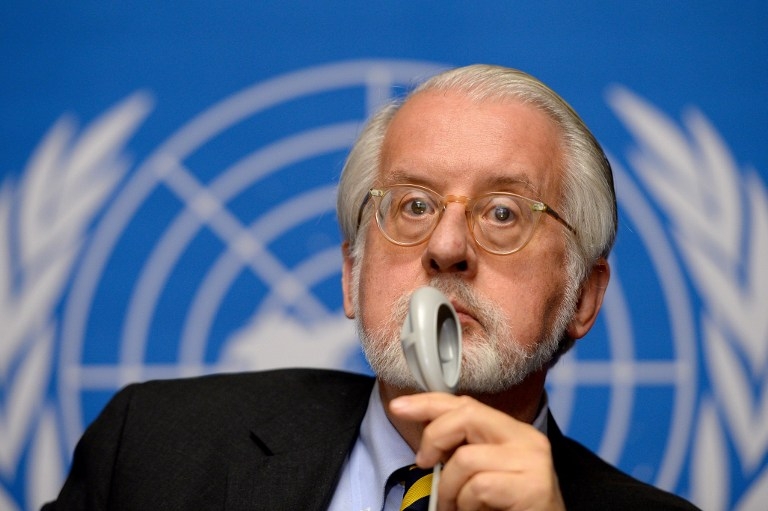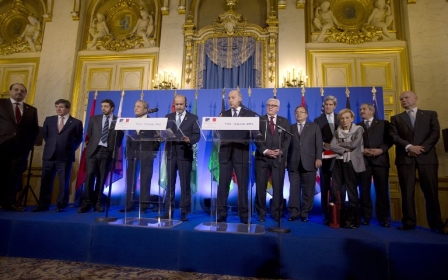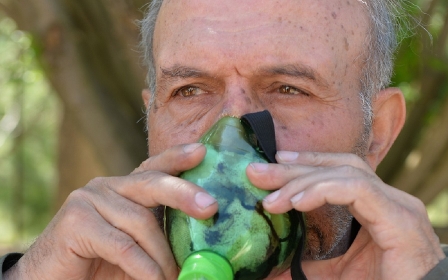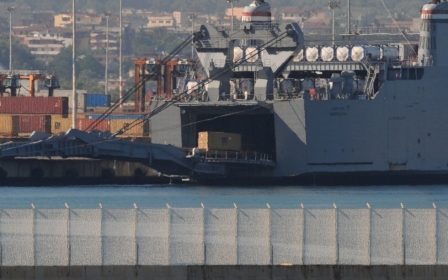UN urges Syria war crimes evidence to go to Hague
UN Human Rights Council says evidence of war crimes should go to the International Criminal Court but Security Council members likely to veto

Chairman of UN Commission of Inquiry on Syria in Geneva on 16 September 2013 (AFP).
Published date: 13 February 2015 00:45 GMT
|
Last update: 9 years 9 months ago
The United Nations has passed a resolution for evidence of war crimes and crimes against humanity in Syria to be sent to the International Criminal Court in The Hague.
The motion was passed by the UN Human Rights Council on Thursday in a vote of 32 to five, with 10 abstentions.
The resolution condemned violations carried out by the Syrian regime, the Islamic State and other opposition groups.
However, the resolution must be passed by the Security Council before it can be put into action and is likely to be vetoed by Syria’s allies Russia and China.
The resolution also condemned Syria's refusal to cooperate with a commission of inquiry; noted the use of chemical weapons as a breach of international law; and urged the international community to support those countries hosting the most Syrian refugees.
The Organisation for the Prohibition of Chemical Weapons has collected "compelling evidence" that toxic chemicals were used "systematically and repeatedly" used in three villages in northern Syria.
The Syrian government agreed to the destruction of its declared chemical weapons stockpile after a chemical attack in August last year that killed more than 1,400 in the suburbs of Damascus.
The UN Security Council has faced strong criticism as several resolutions on Syria's devastating civil war have been blocked by vetoes by permanent council members Russia and China.
Permanent council member France is proposing that the five veto-wielding members, including the United States and Britain, voluntarily refrain from using the veto in what French foreign minister Laurent Fabius called "mass crimes".
New MEE newsletter: Jerusalem Dispatch
Sign up to get the latest insights and analysis on Israel-Palestine, alongside Turkey Unpacked and other MEE newsletters
Middle East Eye delivers independent and unrivalled coverage and analysis of the Middle East, North Africa and beyond. To learn more about republishing this content and the associated fees, please fill out this form. More about MEE can be found here.




